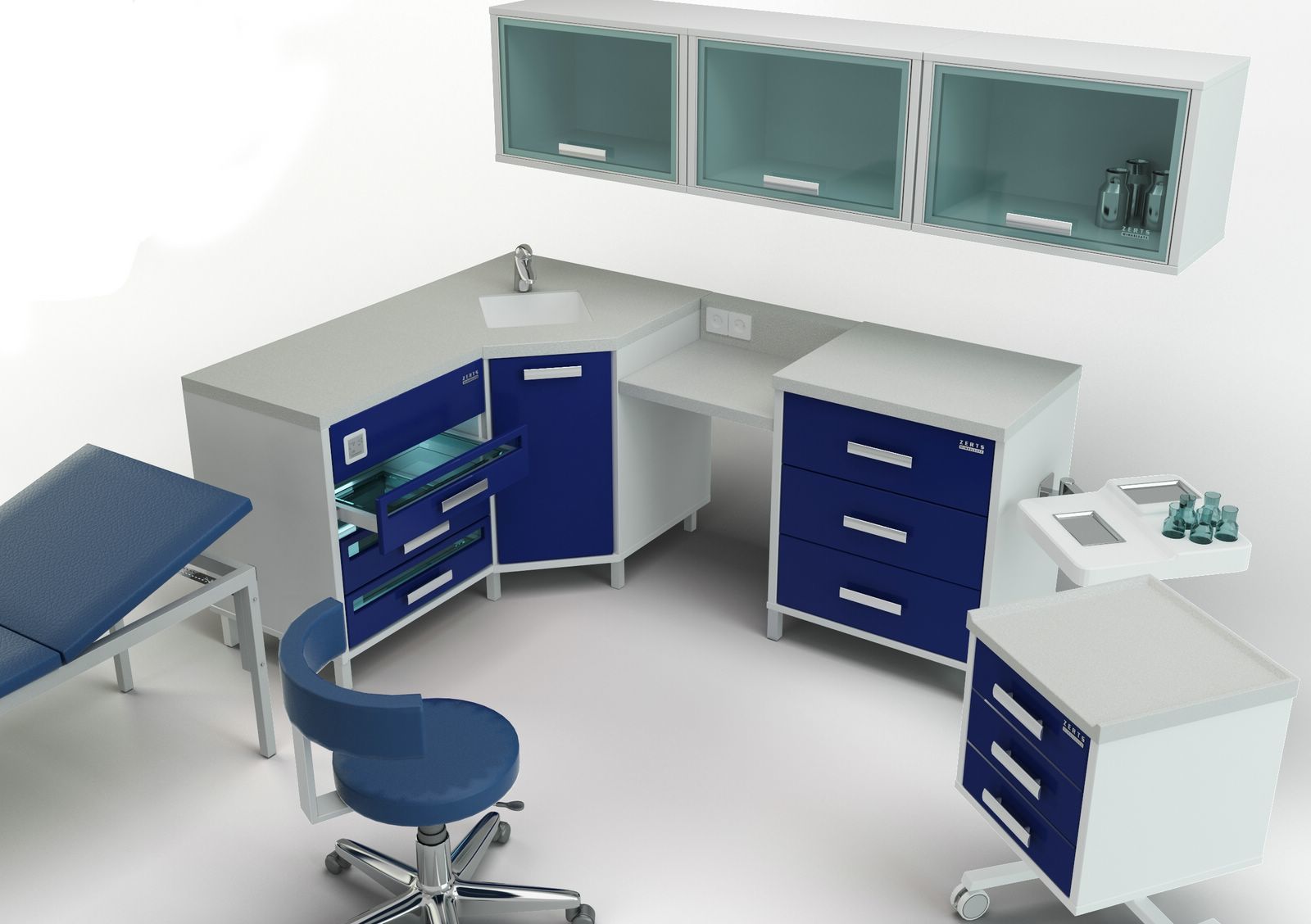
Title: Promoting Comfort and Health: The Role of Ergonomic Furniture in Healthcare Facilities
Introduction: Health care workers in clinics and dispensaries often spend long hours caring for patients, conducting examinations, and performing various medical procedures. Using ergonomic furniture in these spaces is critical to providing comfort, preventing musculoskeletal injuries, and improving the overall well-being of healthcare workers. In this discussion, we will examine the importance of ergonomic furniture, including chairs, adjustable tables, and anti-fatigue mats, in maintaining the physical health and productivity of healthcare workers in clinics and dispensaries.
-
Ergonomic chairs: Ergonomic chairs are designed to provide optimal support and comfort to people who sit for long periods of time. In healthcare settings, ergonomic chairs play a vital role in preventing back pain, neck strain and other musculoskeletal problems among healthcare workers. Key features of ergonomic chairs include:
-
Lumbar Support: Ergonomic chairs feature adjustable lumbar support to maintain the natural curve of the spine and reduce stress on the lower back.
-
Adjustable Height and Armrests: Chairs with adjustable heights and armrests allow healthcare professionals to customize the chair settings to suit their individual preferences and body size, promoting correct posture and reducing strain on the shoulders and arms.
-
Breathable Fabric and Upholstery: Ergonomic chairs are often made with breathable fabric and soft upholstery to provide comfort and prevent discomfort associated with prolonged sitting.
-
-
Adjustable Desks: Adjustable desks, also known as standing desks or sit-and-stand desks, provide healthcare workers with the flexibility to alternate between sitting positions throughout the workday. These desks promote movement and reduce sedentary behavior, which benefits overall health and productivity. Key features of adjustable desks include:
-
Height Adjustable: Adjustable tables can be easily raised or lowered to accommodate a variety of working positions, allowing healthcare professionals to find the optimal height for tasks while sitting or standing.
{thirty} -
Electric or manual mechanisms: Some adjustable desks have electric motors for easy height adjustment, while others use manual crank or pneumatic lift mechanisms.
-
Integrated Cable Management: Adjustable desks often come with built-in cable management systems that keep cords and cords organized and out of the way, creating a tidy, clutter-free workspace.
-
-
Anti-fatigue mats: Anti-fatigue mats are ergonomic accessories that are placed on the floor in areas where healthcare workers stand for long periods of time, such as exam rooms, treatment rooms, and medication dispensing stations. These mats provide cushioning and support, reducing fatigue and stress on your feet
-
Soft Support: Anti-fatigue mats are made from materials that provide shock absorption and shock absorption, reducing stress on joints and muscles from prolonged standing.
-
Slip-Resistant Surface: The mats have a non-slip surface to prevent slips, trips and falls in wet or high-traffic areas, ensuring safety for both healthcare workers and patients.
-
Easy-to-clean material: Anti-wear mats are typically made from durable, easy-to-clean materials such as rubber or foam, making them suitable for healthcare settings where cleanliness and hygiene are paramount.
-
Conclusion: Ergonomic furniture, including chairs, adjustable tables and anti-fatigue mats, plays a critical role in maintaining the physical health and well-being of healthcare workers working in clinics and dispensaries. Ergonomic furniture improves comfort, prevents musculoskeletal injuries and encourages movement during the workday. As healthcare facilities prioritize the safety and well-being of their staff, investing in ergonomic furniture becomes essential to create a positive work environment that allows healthcare workers to provide high-quality care with comfort and confidence.






